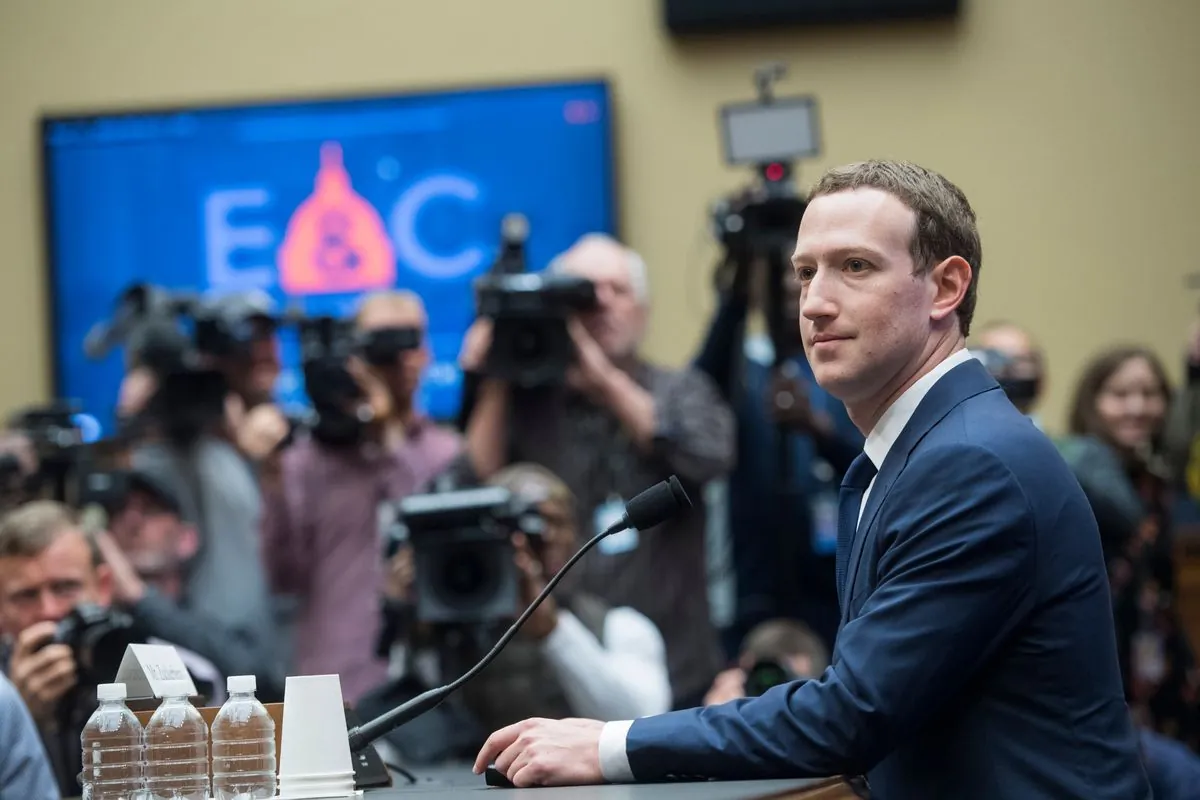Zuckerberg Admits Regret Over Meta's Pandemic Content Moderation
Meta CEO Mark Zuckerberg expresses remorse for censoring COVID-19 related posts on Facebook and Instagram during the pandemic, citing pressure from White House officials after Biden's inauguration.

In a recent development, Mark Zuckerberg, the CEO of Meta, has acknowledged that the company's content moderation practices during the COVID-19 pandemic were misguided. This admission comes amidst ongoing debates about the role of social media platforms in controlling information flow and the boundaries of free speech in the digital age.
Zuckerberg revealed that Meta, which owns Facebook and Instagram, faced significant pressure from senior White House officials following Joe Biden's inauguration in January 2021. The pressure stemmed from concerns about the spread of COVID-19 misinformation on these platforms. In response, Meta implemented various measures, including adding misinformation alerts to posts deemed false and removing content that criticized vaccines or suggested a laboratory origin for the virus.
"We made some choices that we would not have made today."
This statement reflects a shift in Meta's approach to content moderation, highlighting the complex challenges faced by social media companies in balancing free speech with the need to combat potentially harmful misinformation.
The incident raises important questions about the role of government in influencing online content moderation. It's worth noting that the First Amendment of the US Constitution protects freedom of speech, yet the boundaries of this protection in the digital realm remain a subject of ongoing debate.

Interestingly, while social media platforms have been reluctant to moderate content when pressured by concerned parents regarding harmful images and hate speech, they appeared more willing to comply with government requests during the pandemic. This discrepancy has sparked discussions about the criteria used to determine what constitutes "misinformation" and who should have the authority to make such decisions.
The COVID-19 pandemic has highlighted the crucial role of social media in disseminating information during global crises. The World Health Organization declared COVID-19 a pandemic on March 11, 2020, and since then, platforms like Facebook have played a significant part in shaping public discourse about the virus, its origins, and preventive measures.
It's important to note that some information initially labeled as "misinformation" during the pandemic later gained credibility. For instance, the lab leak theory of COVID-19's origin, once dismissed, has since been considered a plausible explanation by some experts.
As we navigate the complex landscape of online information, it's crucial to consider the broader implications of content moderation policies. The concept of "echo chambers" in social media, where users are exposed primarily to information that aligns with their existing beliefs, adds another layer of complexity to this issue.
In conclusion, Zuckerberg's admission serves as a reminder of the ongoing challenges in balancing free speech, public safety, and the role of social media platforms in shaping public discourse. As the digital landscape continues to evolve, the debate over content moderation and its impact on society is likely to remain at the forefront of public discussion.


































